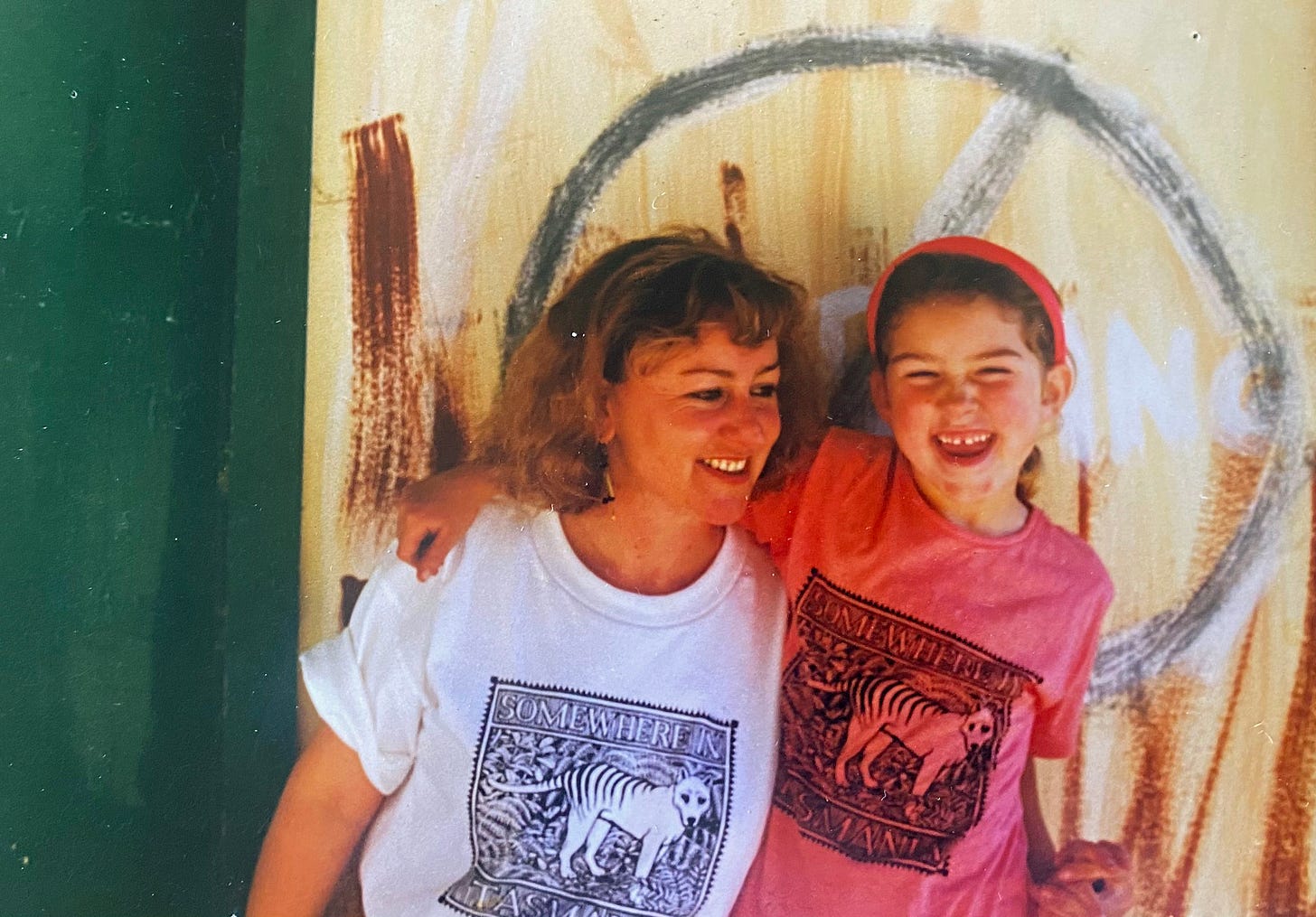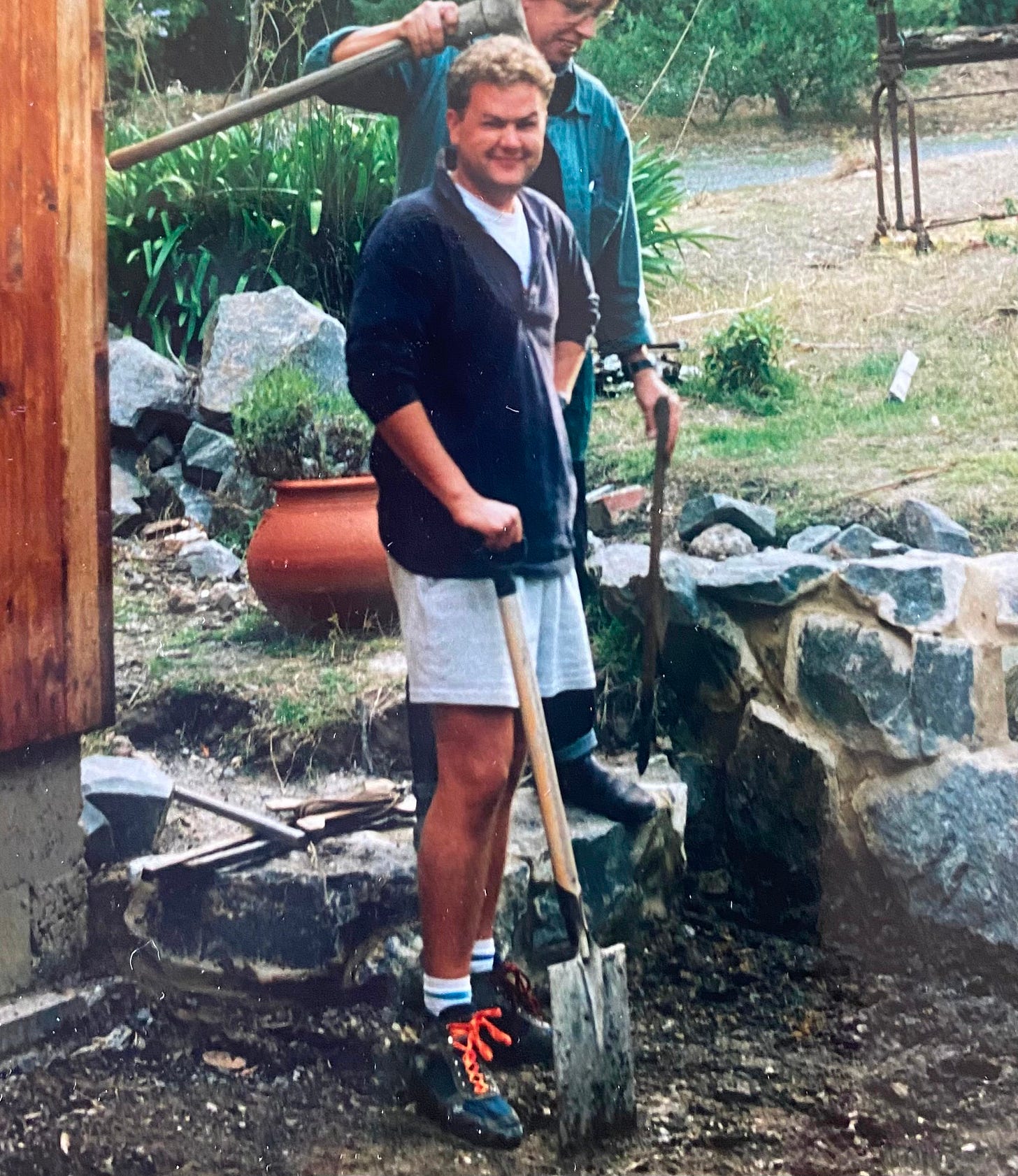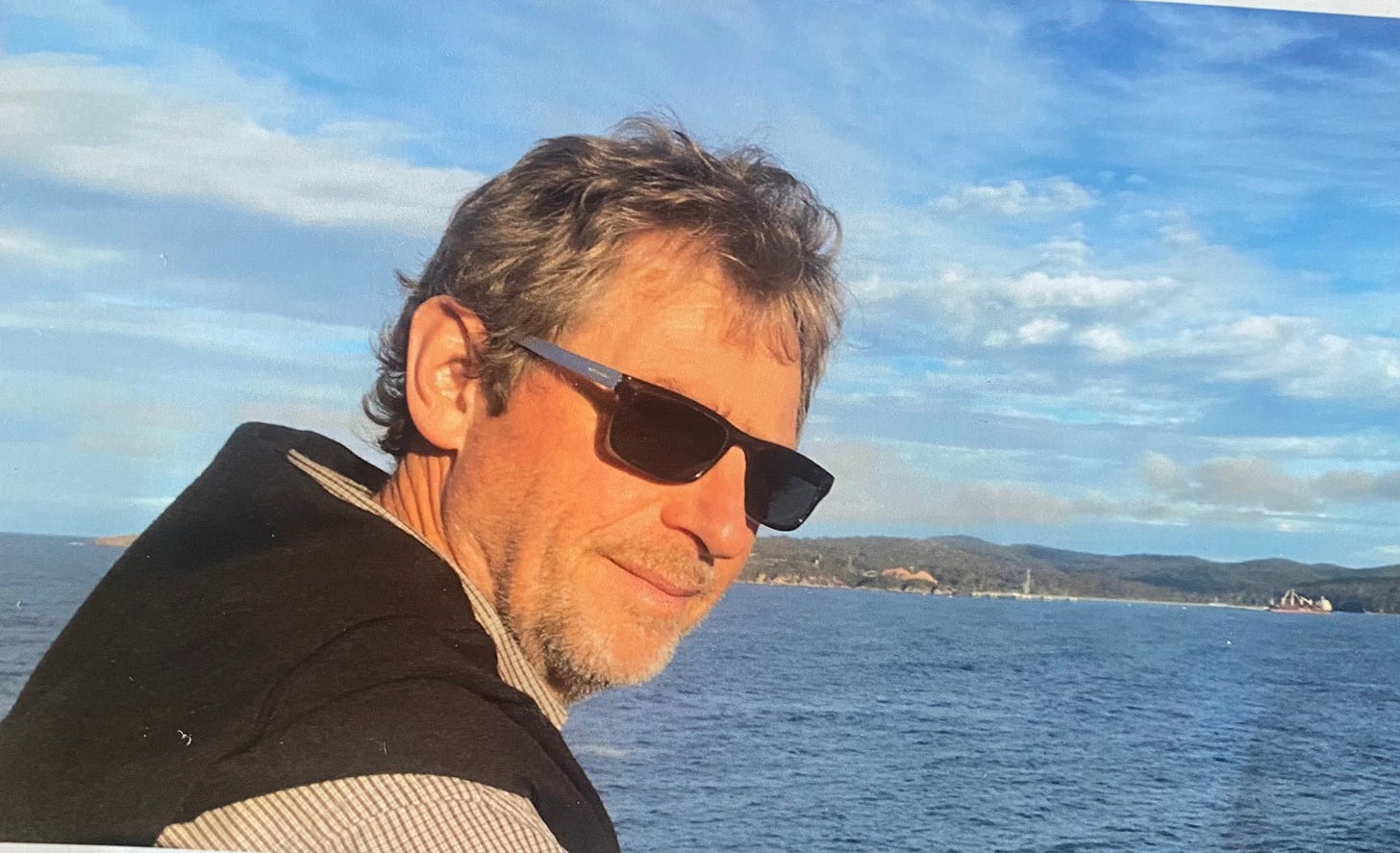When I was 35 my mother died and everything in my life that had been stable changed irrevocably. Mum was only 57 years old. Too young. My grief-stricken father married again — rather quickly — to a much younger woman and moved from Sydney’s northern beaches to a country property on the north coast of NSW. I was a single parent living in Avalon, Sydney, with a four-year-old daughter and a reasonably successful career but I decided it was time to radically change my life too. Lilli and I moved in the other direction, south to Hobart in Tasmania, Australia’s least populated state. The cooler climate, rugged mountains, areas of untouched wilderness, and slower pace of life offered a sense of renewal.
There is something quite gothic about Tasmania. It has a particularly grim past with its early convict history, which saw the decimation of most of the island’s aboriginal population. It is a place that invites introspection. ‘Backwaters collect the most varieties of driftwood,’ someone said to me not long after I arrived. It was a new frontier for me, an island at the bottom of the world, a brave new adventure — although not a very astute career move.
Shortly after after Lilli and I moved to Hobart my three younger brothers followed us down. This made me feel responsible for them as well, which was not something I particularly wanted. They too were troubled souls following my mother’s death. Two years later we lost my middle brother to suicide.
Keeping myself emotionally afloat during this time required a huge amount of effort. My sister, extended family, friends and if I’m honest, a lot of red wine, helped me survive. I took to reading self-help books. I remember ‘Feel the Fear and Do it Anyway’ by Susan Jeffers was a well-thumbed book on my bedside table.
Over time, life picked up again as it invariably does. Being a parent is a very motivating reason to keep oneself moving forward in the best way one can. Good times followed the sad years. I met and moved in with a new partner on his waterfront bush property at Oyster Cove just out of Hobart. My daughter settled in well to our life there and made lots of friends at the local school. Not long after, I had the amazing experience of being reunited — after a 23-year separation — with the son I had given up for adoption when I was 16. That’s a story for another time …
In my early-40s life changed again. My partner and I split up and Lilli and I moved nearer to Hobart. I decided it was time for a career change and went back to university and did a post-graduate diploma to become a librarian. I got short-term work contracts as a librarian and had foreign students and young people board with us to help bring in more income. Life was okay and manageable but I felt like I was destined to never experience an enduring relationship or a feeling of self-worth and stability. I started going to yoga classes, reading self-help books again, and seeing alternative healers and counsellors.
A book that resonated with me during this time was Deepak Chopra’s ‘The Seven Spiritual Laws of Success: A Practical Guide to the Fulfillment of Your Dreams’. Chopra believes that the best way to achieve the life you want is to have a very clear intention of what it is you desire. Preferably you need to be able to visualise it. I remember listening to a guided meditation and being taken on an imaginary walk through a forest. The narrator described coming to a clearing where there was a table ‘with an object on it that would be of great significance to your life’. I saw a book on that table. I wrote this down in my journal. Later in this same journal I wrote down a positive vision of my future self — envisaged during another guided meditation — a vision of me walking along a beach holding hands with a tall man.
Recently I came across this journal at the back of a cupboard. I flicked through it and read about my visions of the book on the table and of me walking along a beach holding hands with a tall man. It made me smile to acknowledge that both of these visions/intentions had come true. I have been very happily married now for 20 years to my husband (a tall man I met in a library where we both worked). Now that we are retired we walk on the beach just about every day of the week. I confess the ‘holding hands’ bit is no longer the norm these days; he’s usually walking on ahead and I’m taking photographs or recording video chats with my sister and best friend. As regards the ‘book on the table’ vision, in 2018, my book ‘The Snake Around My Heart: A Memoir of Adoption and Rediscovery’ was published. It received a lot of positive feedback and it gave me so much happiness that my son John and I were able to tell our reunion story as encouragement to others to seek out family lost as a result of an adoption process.
My desire to live a reflective and intentional life has grown as I’ve aged. Like the philosopher Socrates, I think that ‘the unexamined life is not worth living’. I admit though that too much self-reflection is possibly a trait of the overthinker — of which I am definitely one.
Now that I am 71, I have much more time in my days to follow my many interests. I wake early each day and spend one to two hours reading numerous Substacks and other inspirational sources. I follow some great writers and thinkers and read about people’s lives from all around the world. I avoid doom scrolling. I also write in my journal and set intentions for my day. Sometimes I write intentions for family members or friends or people I know who are sick or in a bad way. I find it harder to set long-term intentions for myself for the future because I feel so lucky to have made it to 71. Perhaps, I need to examine what limiting self-beliefs are holding me back.
Be intent upon the perfection of the present day.
- William Law
A perfect day for me is one where I get time to be creative, partake in lively conversations (particularly on matters of the soul), get out in nature, and spend time with loved ones. To have the opportunity to make someone happy also makes for a better day. Of course, these things don’t always happen. There are always mundane things to do and life can get tricky.
The daily intention I’m favouring at the moment is:
‘Minimise the stress. Maximise the joy.’
A great antidote I read recently to stop night-time looping thoughts is to say to yourself: ‘But what if it all works out?’
Questions I’ve recently enjoyed pondering:
What really matters to you right now?
Where are the silences in your life?
What makes you come fully alive?
What questions about life won’t leave you alone?
What is your vision of your future self?
How do you want to be remembered?
If you are an overthinker like me you will probably enjoy Elizabeth Strout’s latest book ‘Tell Me Everything’. At its heart, it’s a book about overthinkers talking to other overthinkers about their thoughts. It’s totally wonderful. It’s my favourite read of the year so far, closely followed by ‘Long Island’ by Colm Toibin and ‘Graft’ by Maggie Mackeller.
Thank you for reading my substack.








I love "But what if it all works out?’" I have been a widow for four years and have taken overthinking to a new level. What I've found is that for all my worry - it -whatever it is - does work out. So that seems like a powerful affirmation.
"Feel the fear and do it anyway" helped me out of a dark spot! Thanks for the other book recommendations! Love your list at the end!